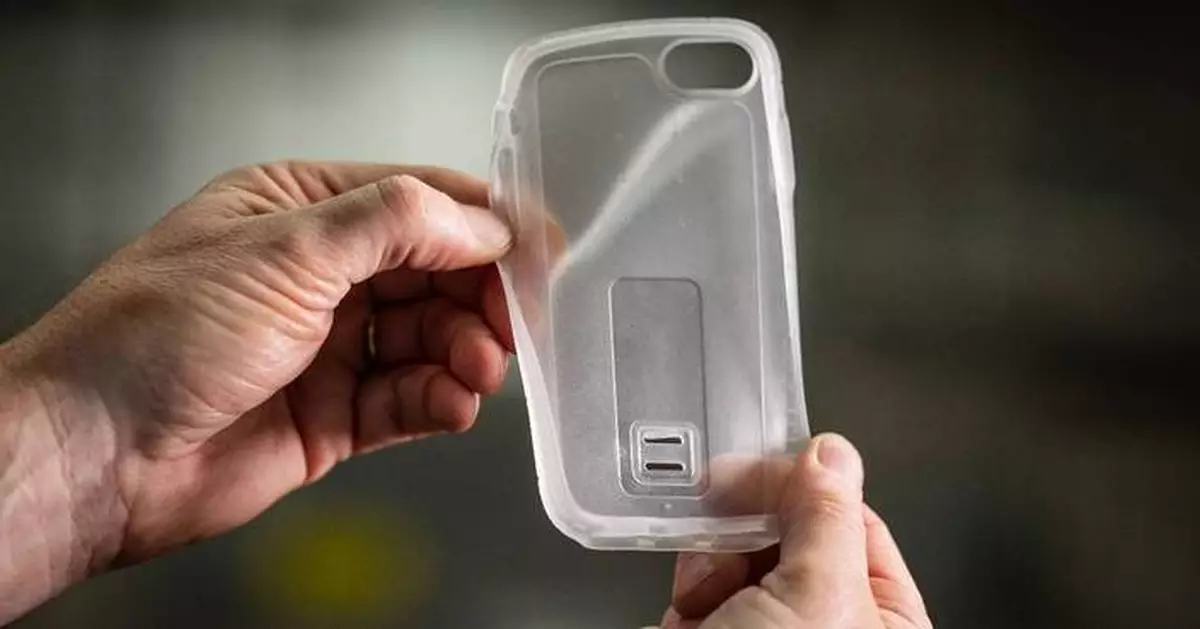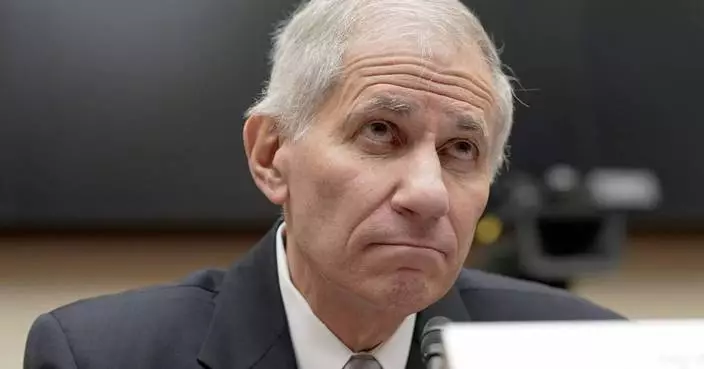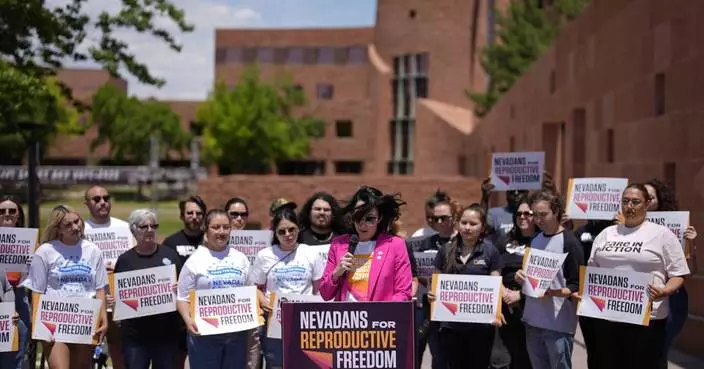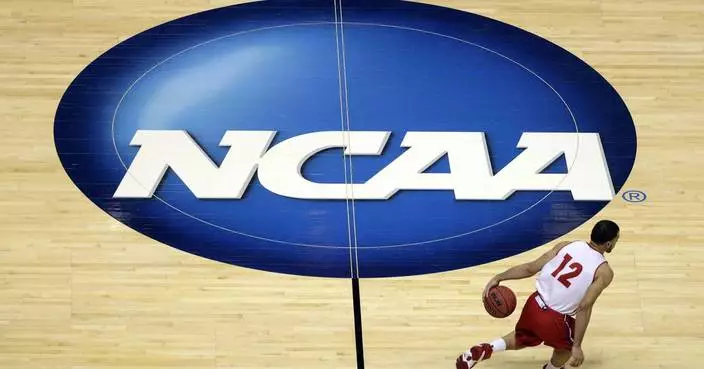KINGSPORT, Tenn. & WICKLIFFE, Ohio--(BUSINESS WIRE)--Apr 30, 2024--
Eastman and Lubrizol have successfully partnered on improving adhesion strength of thermoplastic elastomers (TPEs) overmolded onto Eastman Tritan™ copolyester TX1501HF. The collaboration stemmed from a mutual recognition of overmolding's importance in manufacturing while delivering improved product performance and aesthetics in consumer goods when using Eastman’s sustainable material, Tritan™ Renew, and Lubrizol’s ESTANE® ECO, renewably sourced TPU.
This press release features multimedia. View the full release here: https://www.businesswire.com/news/home/20240430342572/en/
The companies researched how specific processing variables impact the adhesion strength of overmolded samples produced through 2K injection molding. The study’s findings are believed to be applicable across various TPE and substrate combinations. This is of particular interest when mechanical interlocks cannot be used, and material changes are not feasible but improvements in adhesion strengths are desired.
By optimizing key TPE processing variables like mold temperature, pack and hold time, and TPE barrel temperature, the research team achieved a notable 124% improvement in adhesion strength compared to values obtained using non-ideal processing conditions. An additional improvement in adhesion strength was observed when Lubrizol’s ESTANE® ECO 12T80E and 16T85 TPU grades were used. These grades displayed the highest peel strength values (> 310 N) of all TPEs evaluated in this preliminary study.
“This was a unique opportunity for two leading material companies to leverage sustainable multi-material solutions that enable customer innovations and expand the limits of consumer product experiences,” said Vince Haas, Lubrizol’s engineered polymers senior business director.
“This effort has advanced our understanding of overmolding and TPEs, providing valuable guidance for engineers and manufacturers looking to improve overmolded product strength,” said Courtland Jenkins, Eastman’s commercial director for engineered solutions. “These findings open doors for new and innovative product designs, particularly when using recycled content.”
For a detailed view of the study, access the white paper [link].
NPE2024 attendees are invited to visit Lubrizol’s booth #S35017, May 6-10 in Orlando, Fla., to see Tritan™ Renew materials overmolded with ESTANE® ECO technology and can also gain deeper insights through a joint webinar hosted by UL Prospector at 9 a.m. on Wednesday, June 12. Webinar registration link here [link].
About Eastman
Eastman is a global specialty materials company that produces a broad range of products found in items people use every day. With the purpose of enhancing the quality of life in a material way, Eastman is committed to safety, innovation and sustainability. Headquartered in Kingsport, Tennessee, USA, it had 2023 revenues of approximately $9.2 billion. For more information, visit www.eastman.com.
About The Lubrizol Corporation
The Lubrizol Corporation, a Berkshire Hathaway company, is a specialty chemical company whose science delivers sustainable solutions to advance mobility, improve wellbeing and enhance modern life. Founded in 1928, Lubrizol owns and operates more than 100 manufacturing facilities, sales and technical offices around the world and has more than 8,000 employees. For more information, visit www.Lubrizol.com.


Eastman and Lubrizol collaborate to enhance TPE overmolding adhesion with sustainable materials. (Photo: Business Wire)
In an isolated part of the U.S. Drug Enforcement Administration headquarters known as the 12th-floor “bubble,” chief Anne Milgram made an unusual request of top deputies summoned in March for what she called the “Marijuana Meeting”: Nobody could take notes.
Over the next half hour, she broke the news that the Biden administration would soon be issuing a long-awaited order reclassifying pot as a less-dangerous drug, a major hurdle toward federal legalization that DEA has long resisted. And Milgram went on to reveal another twist, according to two people familiar with the private meeting who spoke to The Associated Press on condition of anonymity, that the process normally steered by the DEA had been taken over by the U.S. Justice Department and the action would not be signed by her but by Attorney General Merrick Garland.
Milgram didn't give aides a reason for the unprecedented omission and neither she nor the DEA has explained since. But it unfolded this past week exactly as laid out in that meeting two months ago, with the most significant drug policy change in 50 years launched without the support of the nation’s premier narcotics agency.
“DEA has not yet made a determination as to its views of the appropriate schedule for marijuana,” reads a sentence tucked 13 pages into Garland’s 92-page order last Thursday outlining the Biden administration proposal to shift pot from its current Schedule I alongside heroin and LSD to the less tightly regulated Schedule III with such drugs as ketamine and some anabolic steroids.
Internal records accompanying the order indicate the DEA sent a memo to the Justice Department in late January seeking additional scientific input to determine whether marijuana has an accepted medical use, a key requirement for reclassification. But those concerns were overruled by Justice Department attorneys, who deemed the DEA’s criteria “impermissibly narrow.”
Several current and former DEA officials told the AP they believe politics may be at play, contending the Justice Department is moving forward with the marijuana reclassification because President Joe Biden wants to use the issue to woo voters in his re-election campaign and wasn’t willing to give the DEA time for more studies that likely would have dragged beyond Election Day.
Those officials also noted that while the Controlled Substances Act grants the attorney general responsibility for regulating the sale of dangerous drugs, federal law still delegates the authority to classify drugs to the DEA administrator.
“It’s crystal clear to me that the Justice Department hijacked the rescheduling process, placing politics above public safety,” said Derek Maltz, a retired agent who once headed the DEA’s Special Operations Division. “If there’s scientific evidence to support this decision, then so be it. But you’ve got to let the scientists evaluate it.”
Former DEA Administrator Tim Shea said the striking absence of Milgram’s sign-off suggests she was backing “the DEA professionals.”
“If she had supported it she would have signed it and sent it in,” said Shea, who served in the Trump administration. “DEA was opposed to this and the politics entered and overruled them. It’s demoralizing. Everybody from the agents in the streets to the leadership in DEA knows the dangers this brings.”
The White House did not respond to a request for comment but Press Secretary Karine Jean-Pierre previously said Biden was committed to fulfilling a 2020 campaign promise. “He said no person, no American who possesses marijuana should go to jail. It is affecting communities across the country, including communities of color.”
Justice Department attorneys defended Garland’s decision to proceed without Milgram’s backing, saying in a separate memo that the action was prompted by “sharply different views” between DEA and the Department of Health and Human Services. The HHS last year recommended reclassifying marijuana, deeming it less risky to public health than cocaine, heroin and oxycodone, and effective in treating anorexia, pain and other ailments.
HHS concluded in part that “although abuse of marijuana produces clear evidence of a risk to public health, that risk is relatively lower than” that posed by other drugs.
The DEA balked at those findings and Garland’s order cites at least 10 times when the drug agency requested additional information before blessing HHS’ medical findings. It did not respond to AP questions seeking further comment.
The Justice Department didn't comment on internal differences but in a statement said that the proposal was “consistent with the scientific and medical determinations of HHS."
The dissonance within the federal government underscores the continuing debate over the risks posed by cannabis, even as 38 states have legalized medical marijuana and 24 have legalized its recreational use. All the while, more voters — 70% of adults, according to a Gallup poll last fall — support legalization, the highest level yet recorded by the polling firm.
“The argument that marijuana is as dangerous as fentanyl, cocaine and meth is laughable,” said Matthew C. Zorn, a Houston-based attorney who writes a newsletter on cannabis regulation. “The DEA isn’t where most Americans are. They’re standing on the wrong side of history.”
But even HHS’ National Institute on Drug Abuse has come out with statements in apparent conflict with HHS’ recommendation to reclassify pot, saying the potency of marijuana has been steadily increasing over the years, resulting in higher numbers of emergency room visits to treat a wide range of physical and mental effects, from breathing problems and mental impairment to hallucinations and paranoia.
“Whether smoking or otherwise consuming marijuana has therapeutic benefits that outweigh its health risks is still an open question that science has not resolved,” Nora Volkow, a neuroscientist who leads NIDA, is currently quoted as saying on the institute’s website. A NIDA spokesperson said rescheduling would facilitate research more into the drug.
The NIDA last performed a medical evaluation of marijuana in 2015 — a year before the Obama administration's DEA rejected a similar request to reschedule the drug.
This time, after Biden ordered a review of the drug’s status in 2022, HHS adopted new criteria to reach its rescheduling conclusion, taking into account the states that have already legalized medical marijuana.
The rescheduling move, first reported by the AP last month, faces a potentially lengthy process. The DEA, which is not bound by HHS' medical determinations at this point, will take public comment on the rescheduling plan before a review by an administrative judge and the publishing of a final rule. Federal prosecutions involving marijuana are already exceedingly rare but a Schedule III classification would still make pot a controlled substance subject to rules and regulations
For her part, Milgram has said little about her stance on marijuana and was not asked about it during her confirmation. When she took the helm of the agency in 2021, she privately told colleagues she considered the legalization debate a distraction from the far more serious fentanyl crisis, according to one of the people who spoke to the AP.
Milgram is known for a progressive, data-driven approach to law enforcement dating to her days as the Democratic attorney general of New Jersey. When the state’s governor, a close ally, signed a bill in 2010 making the state the 14th to make marijuana legal for medical purposes, she said only that the legislation was “workable.”
This past week, she was similarly opaque in a three-sentence announcement to DEA employees obtained by the AP.
“As required,” she wrote, “the DEA will post this notice and all attachments on our website.”
Goodman reported from Miami, Mustian from New York. AP Writer Lindsay Whitehurst in Washington contributed.
Contact AP’s global investigative team at Investigative@ap.org or https://www.ap.org/tips/

FILE - Attorney General Merrick Garland speaks during a news conference at Department of Justice headquarters in Washington, March 21, 2024. The Biden administration’s push to reclassify marijuana as a less-dangerous drug is going forward without the support of the nation’s premier narcotics agency. Newly released government records show the Drug Enforcement Administration requested more information on supporting science to reclassify marijuana but the Justice Department decided to move ahead without the drug agency’s signoff — an unprecedented omission. (AP Photo/Jose Luis Magana, File)

FILE - An indoor cannabis farm in Gardena, Calif., is seen, Aug. 15, 2019. The Biden administration’s push to reclassify marijuana as a less-dangerous drug is going forward without the support of the nation’s premier narcotics agency. Newly released government records show the Drug Enforcement Administration requested more information on supporting science to reclassify marijuana but the Justice Department decided to move ahead without the drug agency’s signoff — an unprecedented omission. (AP Photo/Richard Vogel, File)

FILE - DEA Administrator Anne Milgram speaks during a news conference at the Justice Department in Washington, Friday, April 14, 2023. The Biden administration’s push to reclassify marijuana as a less-dangerous drug is going forward without the support of the nation’s premier narcotics agency. Newly released government records show the Drug Enforcement Administration requested more information on supporting science to reclassify marijuana but the Justice Department decided to move ahead without the drug agency’s signoff — an unprecedented omission. (AP Photo/Susan Walsh, File)














